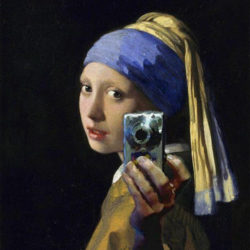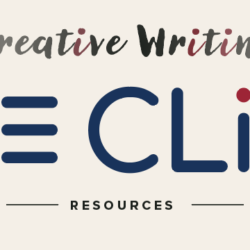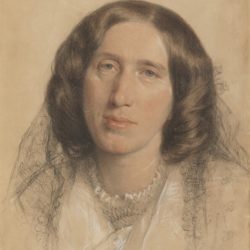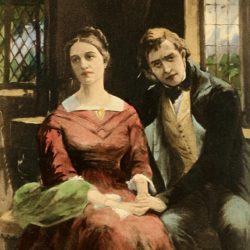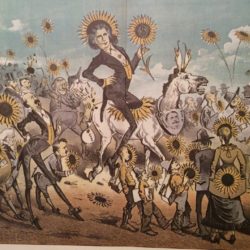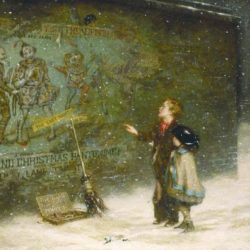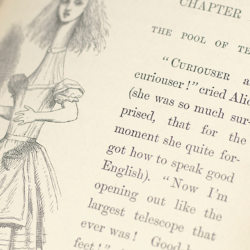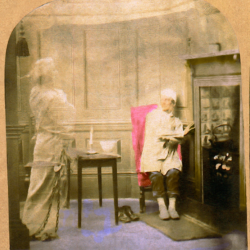Using light as an example, this blog post demonstrates how the CLiC Web App can be used as an innovative research tool for creative writers of historical fiction. Previous #CLiCCreative posts by Dr Rosalind White are available here. This post is also available as a handout. From foreboding storms and moonlit moorland strolls to jovial fireside … Continue reading “Using CLiC as a Creative Research Tool: Let there be Light”
Tag: CLiC
Using CLiC as a Creative Research Tool: Checking your Manuscript for Anachronisms
This post, penned by Dr Rosalind White (@DrRosalindWhite), will provide an overview of how our CLiC Web App can be used as an innovative historical research tool to cross-reference or verify historical details. This can help writers save time and energy, as well as quickly immerse them in the particulars of their preferred period. You … Continue reading “Using CLiC as a Creative Research Tool: Checking your Manuscript for Anachronisms”
Introducing #CLiCCreative, a Digital Resource and Research Tool for Writers
Today we have some exciting news. Professor Michaela Mahlberg (@MichaMahlberg)and Dr Rosalind White (@DrRosalindWhite) will be launching a new project, #CLiCCreative. If this is your first time on our blog, the CLiC Web App facilitates computer-assisted textual analysis of nineteenth-century literature. CLiC-assisted research has revealed recurring textual features of narrative fiction that are easily overlooked … Continue reading “Introducing #CLiCCreative, a Digital Resource and Research Tool for Writers”
George Eliot’s Interjections
Gregory Tate is a Senior Lecturer in Victorian Literature at the University of St Andrews. He is the co-organiser of the AHRC-funded ‘Victorian Literary Languages’ network, and he is writing a book titled The Grammar of Style in Victorian Fiction. In this post, Greg examines George Eliot’s use of, and commentaries on, interjections in her … Continue reading “George Eliot’s Interjections”
Words of affection in George Eliot’s Middlemarch
Eleonora Gallitelli was awarded a PhD in Comparative Literature at IULM University, Milan, for a thesis on the early Italian translations of works by Dickens, Faulkner and Rushdie, where she combined the methodologies of corpus linguistics and close reading. In this post, she identifies the different meanings that the vocabulary of affection assumes for the … Continue reading “Words of affection in George Eliot’s Middlemarch”
Decadence and Debauchery: Undressing the Dandy Using the CLiC Web App
Tiffany Olgun is a PhD student at Royal Holloway, University of London, researching the Dickensian dandy. In this post, she explores the language surrounding nineteenth-century English dandyism and the progression of the dandy from his Regency incarnation to his decadent form. The nineteenth-century English dandy is often portrayed as a man of pure surface and … Continue reading “Decadence and Debauchery: Undressing the Dandy Using the CLiC Web App”
Innocence and Ignorance: Concepts of Childhood Reflected in Charles Dickens’ A Christmas Carol
Fe Brewer is an English teacher and Lead Mentor in Leicester. She is the co-author of Succeeding as an English Teacher (Bloomsbury 2021) and presents regularly on English subject knowledge and education. In this post, she explores how Dickens’ portrayal of children echoes contemporary changes around the concept of childhood.
How can CLiC be used to teach English? Polysemy in Alice’s Adventures in Wonderland
In this post, students of the TESOL (Teaching English to Speakers of Other Languages) MA at the University of Birmingham blog about the CLiC Web App as a language learning resource. This post originated from a task set by Dr Viola Wiegand for ‘Corpus-Assisted Language Learning’, a TESOL module that encourages students to engage with the philosophy of data-driven learning. Many thanks to Weiqing Chu, Luyi Wang, Miaoting Wu and Xinzu Li for their fantastic contribution.
‘To Be Read at Dusk’: Ghost Hunting in the CLiC Corpora
Anya Eastman is a second-year Technê PhD student at Royal Holloway, University of London. Anya’s work explores the memorialisation of Charles Dickens, George Eliot and Oscar Wilde, with an emphasis on heritage and material culture. In addition to her doctoral research Anya is the co-director of Royal Holloway’s Centre for Victorian Studies and she has been on placement at the Charles Dickens Museum, working as a research assistant on the upcoming exhibition ‘To be Read at Dusk: Dickens, Ghosts and the Supernatural’. In this post, Anya explores Dickens’s ghosts using the CLiC corpora and discusses her findings alongside plans for the museum’s exhibition.
CLiC Quick-Start Guide
Dr Rosalind White takes you through a quick-start guide exploring some of CLiC’s features. If you would prefer video instructions these instructions are available in a Twitter thread. You can also find further guidance on the help tab of the CLiC Web App. The CLiC Web App (Mahlberg et al. 2020) was designed specifically for the analysis … Continue reading “CLiC Quick-Start Guide”


